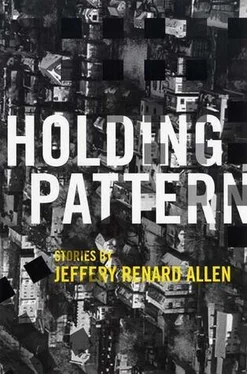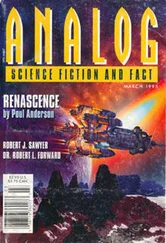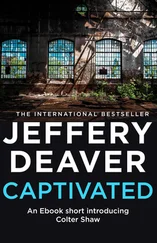A farmer leads a lone cow off into a clump of bushes while the other cows stand and look on. Hatch sings,
My dog resembles a badger
My dog resembles a fox
My dog resembles a bear
But my dog most resembles a dog.
He turns his eyes away from the sight. Sealed in, coach sounds.
And get out that road. Blunt snapped her umbrella open to ward off the sun. He moved under its shade and watched Blunt, her false teeth as bright as cell bars, dead person’s hair concealing gray wire springs poking from her bald scalp. Not in use, the fake hair covered a white faceless squeaking Styrofoam head, like a bird perched in a tree, waiting to lift up its hairy wings and flap away. Mouth free, the teeth slept at the bottom of a mason jar like some strange fish.
Just up the road, John Brown sat on his porch, a look of worry creasing his face. It was a rare sight to see him unguarded in the open. His house was a fort, with squat flowerpots under every window — booby-trapped sentinels — and padded curtains. Even the sun was not welcome. A rare sight indeed. You might spy him in his yard, mowing down millions of green aliens with his ancient cutting machine. Blunt greeted him gladly in the hot afternoon. How you dooch?
Fine.
All right. Boy, where yo manners?
How you, John Brown? Hatch leaned out from the umbrella into the sun.
Fine, boy. Jus fine.
Hatch pepped up his step, the sun circling overhead, heat rising from the ground through his sneakers. Trucks and cars went speeding past — the drivers finding time to wave — rippling the heavy blanket of heat, but the air that circulated was no cooler. Blunt hard-breathed behind him.
Boy, slow down. You catch heatstroke.
Yes’m.
And get back in this shade.
Feet raised and her head arched back — chair and body, a curve of wave — Mamma sleeps beside him, lips quivering with the drive of her snoring, breath regulating itself, deep and slow, lines bunched on her forehead. Windows throw even shadows on her face, moving, a tiny black train. Her mouth makes a swampy sound. He builds a nest around her. Piles high all the reasons she should stay.
I wanna shake.
Miss Bee make you a shake.
Nawl. I wanna go to Chinaman’s.
Go on to Miss Bee.
I don’t want no Miss Bee shake.
Boy, why you so hardheaded?
Hatch watched his feet. He could kick her.
Spoiled. Just spoiled. She done spoiled you.
His line of sight traveled the floor to her sandaled toes, the corns like tiny missiles.
Here. Blunt put the dollar in his palm. You get yo float, but you go to Miss Bee and buy some dranks.
I don’t want no pop. Want some tea.
Don’t be so hard-headed.
Suitcases in hand, they moved slowly through the station, their heels clicking on the tiled floor. He stepped over a puddle of saliva. How come Blunt baptize her teeth?
What?
How come she wear dead hair? He watched the tight purse of Mamma’s lips.
Sometimes you think of the silliest things.
They moved through the station, the air heavy and white, coating the tongue and lips like milk, light sifting through the cloth-shaded windows like flour. Mamma’s head bobbed up and down from fatigue.
You need a break, he said. You need rest.
She did not answer.
Blunt smiled as they stepped out the station — an ancient woman, by Hatch’s most recent calculations, a bundle of dried sticks brittle to the touch.
The next morning, Mamma woke with a nosebleed from the heat.
Will you stay? he asked.
You know I can’t.
Why not?
I have to—
You never stay.
She watched him, her chin tucked into her chest, like a boxer.
Hatch quit the house and ran over the dew-filled grass, diamond wetness that vanished in the fingers when touched. Bush and weed reached greedily after him. Gnats bunched into black fists. He mounted his bike, Blunt screaming after him, her words bouncing off his blind back: Boy, slow down. You catch heatstroke. And there was John Brown, standing in his yard, face pointed up at a green canopy of tree. Drawn by the bike’s motion, he aimed his face at Hatch, his chin hard and straight, his eyes sparkling for a moment as if struggling for recognition. Come here, boy. Hatch felt a stirring in the air, a sense of his own weightlessness, a low rising on winged feet. He pumped his legs with all he had and made off. Time flew fast, for he traveled as far as his two legs and two wheels could carry him, to the outskirts of the green and brown world, where he saw, felt, and studied objects and events he believed no other had. (He would speak his finds on one condition: convincing pay.) He returned to his outpost in the dead hours of heat, tired, hunger chewing up his belly, and saw Miss Bee’s familiar slow steps on the road, gravel crunching underfoot. She would be slower still after a full evening of conversation with Blunt. Hey there, boy. Fingers probing his hair, cold snakes. Together, they walked the two splintery planks — swoll up from the heat like two punch-inflicted eyes but bridge sturdy, bridge steady — leading to Blunt’s front yard, Hatch guiding Miss Bee by the angle of her elbow with one hand, his other balancing his forsaken bike alongside him, and Miss Bee singing,
Got on the train
Didn’t have no fare
But I rode some
I rode some
Conductor asked me
What I’m doing there
But I rode some
I rode some.
How yall? The words floated down on them from John Brown’s porch.
Fine, Miss Bee said.
Sho is hot.
Ain’t it the truth.
Hatch led Miss Bee through Blunt’s screened front door. She was slow, and a sampling of bugs entered with her.
How you dooch?
Blunt and Miss Bee hugged.
The two women spent hours on the couch, shifting their weight from time to time — their thighs sticking to the plastic covers — and spinning talk from the loom of their wrinkled faces, thin laughter trailing across the room to the deep chair where Hatch sat, waiting, reeling in the clear flow of words, sneakers two feet above the floor, jerking, wiggling, and throbbing like hooked fish. The women used tall glasses of clinking iced tea to quench their fiery tongues, cool them to momentary rest. Then they started again. Miss Bee’s armpits raised a staying odor, a thick hot pressure that filled Hatch’s chest.
Why she smell like that?
She can’t help it.
She got plenty of deodorant right there in her store.
She can’t help it. She sick.
On the sly, he pinched his nose. Thinking, why don’t she pack up her tongue and go home?
Boy, help me to the gate, she would say, rubbing her peach seed — hard fingers on his head, her heavy bowling-pin legs made light by two wings of sweat spread across the back of her dark blue housedress.
You see all them sacks in the backa his truck?
Yes, Lawd.
Hatch too recalled seeing a high stack of grocery bags in the back of John Brown’s red pickup, wheels flat with the weight.
Yes, Lawd.
Must have a tapeworm in his belly.
And still ain’t got no meat on his bones.
And don’t he know better than to leave food out like that.
Maybe he like it that way. Rotten.
Wouldn surprise me one bit. Not one.
Hatch sank deeper into the chair.
He got fever in his feathers, for sho.
Hatch pictured a chicken, feathers aflame.
He shell-shocked.
Hatch pictured a shelled green bean and a green shock of corn.
He touched, fo sho.
Hatch pictured a bullying finger plucking a forehead.
They shoulda put him away a long time ago.
Um-huh. If you got a broken leg, walk it off. But you can’t walk off yo head.
Читать дальше












